EMCSR is going to start in just a few days, on the way towards the meetings we would like to introduce to you the people who are making this event a truly interesting and unique one.
As you know, three themes have been proposed for EMCSR 2014:
I. Sustainability and Development
II. Emergence and Design
III. Complexity and Strategy
In this first post about our themes, we would like to present to you a few of the participants in the Sustainability and Development theme, including valuable background information, links for further reading, and interesting interviews.
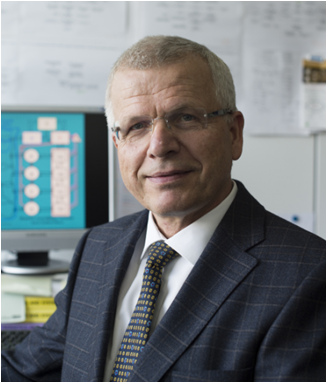 Markus Schwaninger is one of our keynote speakers. He is a professor of management at the University of St. Gallen, Switzerland. His research and teaching are focused on the management of complex dynamic systems, with a methodological emphasis on System Dynamics and Organizational Cybernetics, and he is also a director of the World Organization of Systems and Cybernetics, and a managing editor of System Dynamics Review.
Markus Schwaninger is one of our keynote speakers. He is a professor of management at the University of St. Gallen, Switzerland. His research and teaching are focused on the management of complex dynamic systems, with a methodological emphasis on System Dynamics and Organizational Cybernetics, and he is also a director of the World Organization of Systems and Cybernetics, and a managing editor of System Dynamics Review.
His topic is Organizing for Sustainability, and in his own words he will address: “The potential contribution of Cybernetics and Systems to help humanity cope with complex challenges and respond to global issues is huge. Until now, this potential has only been actualized to a small fraction. We can continue making it real, building bridges toward a desirable future.”
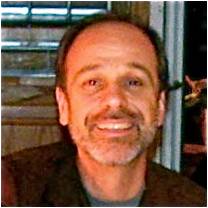 World Evolutionary Learning Tribe will be a demonstration presented by Alexander Laszlo.
World Evolutionary Learning Tribe will be a demonstration presented by Alexander Laszlo.
His background is in systems science and design, policy analysis and technology assessment, and how these relate to the broader field of evolutionary development. He is the 57th President of the International Society for the Systems Sciences (ISSS) and co-founder and President of Syntony Quest.
In his own words: “The World Evolutionary Learning Tribe is a living case of systemic sustainability (aka, thrivability) using a System of Systems (SoS) approach. It is a living example of an exploration of ways in which emerging technologies in the domain of social networking can serve to augment synergies among and between disparate initiatives seeking to foster conditions for a thrivable planet.”
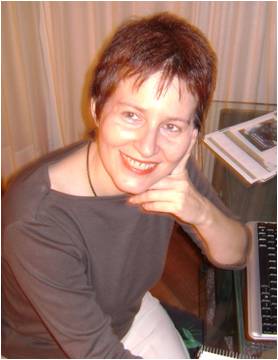 Silvia Zweifel is one of the “Economic system change” symposium chairs. She is a vocational author with a strong interest in individual-collective learning. She is the current Secretary General of GESI (Grupo de Estudio de Sistemas Integrados, a Civil Society Organization) – Argentina, one of the most active regional entities in systems methodologies research and dissemination, and she is also founder of the “Economía Amable” Group, which she coordinates together with Mechthild Adameit.
Silvia Zweifel is one of the “Economic system change” symposium chairs. She is a vocational author with a strong interest in individual-collective learning. She is the current Secretary General of GESI (Grupo de Estudio de Sistemas Integrados, a Civil Society Organization) – Argentina, one of the most active regional entities in systems methodologies research and dissemination, and she is also founder of the “Economía Amable” Group, which she coordinates together with Mechthild Adameit.
In her own words: “The “Economic system change” symposium purpose is to foster a renewal of concepts and practices in every field of activity, with a special focus on economy. We are going to converse about desirable changes guided by a future scenario where all the delicate challenges we are facing today don’t exist anymore.”
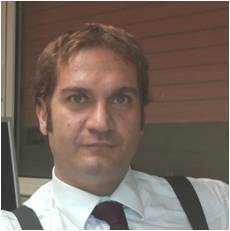 Gandolfo Dominici chairs the symposium on “Corporate social responsibility: multilevel foundations towards a new holistic framework of CSR and a new concept of economic value.” He is an Italian academic and consultant, co-founder and scientific director of the Business Systems Laboratory, board member of the World Organisation of Systems and Cybernetics and of the Italian Universities Consortium for Industrial and Managerial Economics (CUEIM).
Gandolfo Dominici chairs the symposium on “Corporate social responsibility: multilevel foundations towards a new holistic framework of CSR and a new concept of economic value.” He is an Italian academic and consultant, co-founder and scientific director of the Business Systems Laboratory, board member of the World Organisation of Systems and Cybernetics and of the Italian Universities Consortium for Industrial and Managerial Economics (CUEIM).
In his own words: “Corporate social responsibility can be an incredibly effective tool, which may bring to a new and wider concept of value creation overcoming the limits of the classical economic theory based on financial capital and profit that are at the basis of the actual economic and social world crisis. The track “Corporate social responsibility: multilevel foundations towards a new holistic framework of CSR and a new concept of economic value” aims to gather the cutting edge of scholar research and good practice towards this goal.”
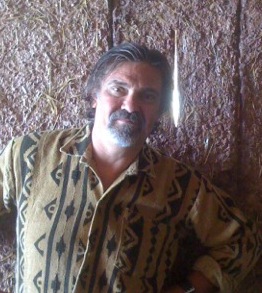 Antonino Saggio is architect, scholar and professor and holds the Architecture and Information Technology Chair at the School of Architecture at Sapienza, University of Rome. He is the coordinator of the PhD program in Architecture Theory and Design which is one of the oldest and most renown in Italy. The Ph.D. program is offered by the Department of Architecture and Design to which Saggio belongs since 1986.
Antonino Saggio is architect, scholar and professor and holds the Architecture and Information Technology Chair at the School of Architecture at Sapienza, University of Rome. He is the coordinator of the PhD program in Architecture Theory and Design which is one of the oldest and most renown in Italy. The Ph.D. program is offered by the Department of Architecture and Design to which Saggio belongs since 1986.



